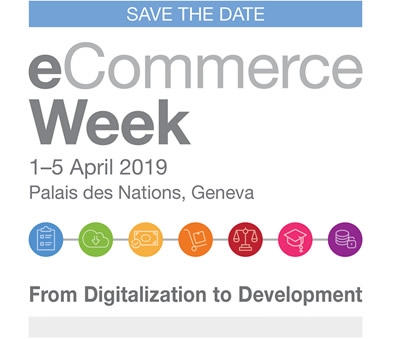The African e-commerce landscape through the eyes of digital entrepreneurs
1 Apr 2019 16:00h - 17:15h
Event report
The session was moderated by Ms Viridiana Garcia-Quiles (eFounders Fellowship Programme, Programme Management Officer, UNCTAD). She started by showing the short video about the eFounders Fellowship Programme and its key roles in improving the lives of young African entrepreneurs. Moreover, she talked about new ways of doing business and how e-commerce can bring along many opportunities for the growth of African economies.
Mr Mukhisa Kituyi (Secretary-General, UNCTAD)in his brief statement, started by noting the effort of young African entrepreneurs. He pointed to the role that the African billionaires can play in helping the creative work of those entrepreneurs in digital transformation. For example, he noted the situation of digital investments in Uganda and Botswana, trying to improve the economy of those countries with the youth partnership.
Mr Brian Wong (Vice-President, Alibaba Group) explained the development model of China in global e-commerce. He talked about the challenges faced by Alibaba Group when they launched this current global company. He noted that they neither have the e-payment system and nor the digital tools. He talked about the eFounders Programme and its huge role in empowering the young entrepreneurs in Africa. He noted that they are the change-makers of the digital transformation. Moreover, he highlighted the opportunities of the digital economy in emerging countries and how to get accessibility of digital infrastructure. According to Wong, there is the opportunity of creating an inclusive role model of e-commerce wherever in the world people happen to be. Moreover, he said that the development of digital technology can help in reducing the digital gap for developing countries. Finally, he said that the young entrepreneurs are ‘the new heroes of the digital economy’.
Mr Teddy Warria (Founder Africa’s Talking) pointed to the electricity as a big challenge during the establishment of his company. However, according to him, the Kenyan government is solving this issue. He mentioned the challenges of money in creating digital platforms. He also emphasised the digital literacy as the main issue. He talked about the importance of digitalisation of markets and other economic areas, for example, the digital identity cards in Kenya.
Mr Eston Kimani (Lead Founder Ideas Come To Life) started by explaining the role and economic impacts of his company in using the e-commerce platforms. He asked how we can move the digital trade agenda faster. He noted the opportunities of Africa in developing the digital economy in different sectors like agriculture, services, etc.
Kimani said that e-commerce cannot exist without the digital infrastructure, and he gave the Chinese example as the motivation for the youth in Africa to create their own businesses. However, he noted the lack of investments and guidance from the public institutions. Thus, he talked about the lack of trust in digital business and e-payment of e-commerce system on the continent. Finally, he said that e-reputation is very important in doing digital business.
Ms Arlette Verploegh Chabot (Deputy Chief of Staff, UNCTAD) explained that some countries have not yet explored how e-commerce can work on national levels. She said that it is necessary to create digital print in order to be visible in regional and international trade. Moreover, she emphasised the huge role of the African Continental Free Trade Area (CFTA) in improving the intra-African trade and e-commerce on the continent. Chabot argued that countries need to change the education system in order to help the young generation deal with digital transformation. According to her, public institutions have to facilitate the process of e-commerce by developing the data protection rules and strengthening trust and security. Finally, she pointed to providing access to financing SMEs in the digital sector and participating through digital skills.
Mr Cedric Atangana (CEO, WeCashUp) highlighted the steps taken, opportunities and challenges faced by his company since the beginning until the present day. He noted the role of mobile money payments in Africa and outside of Africa. He stressed the work of his company in digital transformation in Africa. He pointed to the African population as a big opportunity in doing e-commerce. Furthermore, he noted the challenges of currencies, the cross-border digital trade, and domestic regulations in different countries. He commented on the importance of unifying African countries in doing e-commerce by African Union institutions. Moreover, Atangana emphasised the African investors’ lack of trust in building the digital economy and issues of digital payments.
He said that the public institutions, governments and business people must work together to tackle the challenges of African young entrepreneurs in the digital economy. Finally, he commented on the Pan-African monetary tools in helping to improve the work done by these young African entrepreneurs.
By Gilles D. Bana
Related topics
Related event

eCommerce Week 2019: From Digitalization to Development
1 Apr 2019 15:45h - 5 Apr 2019 15:45h
Geneva, Switzerland
